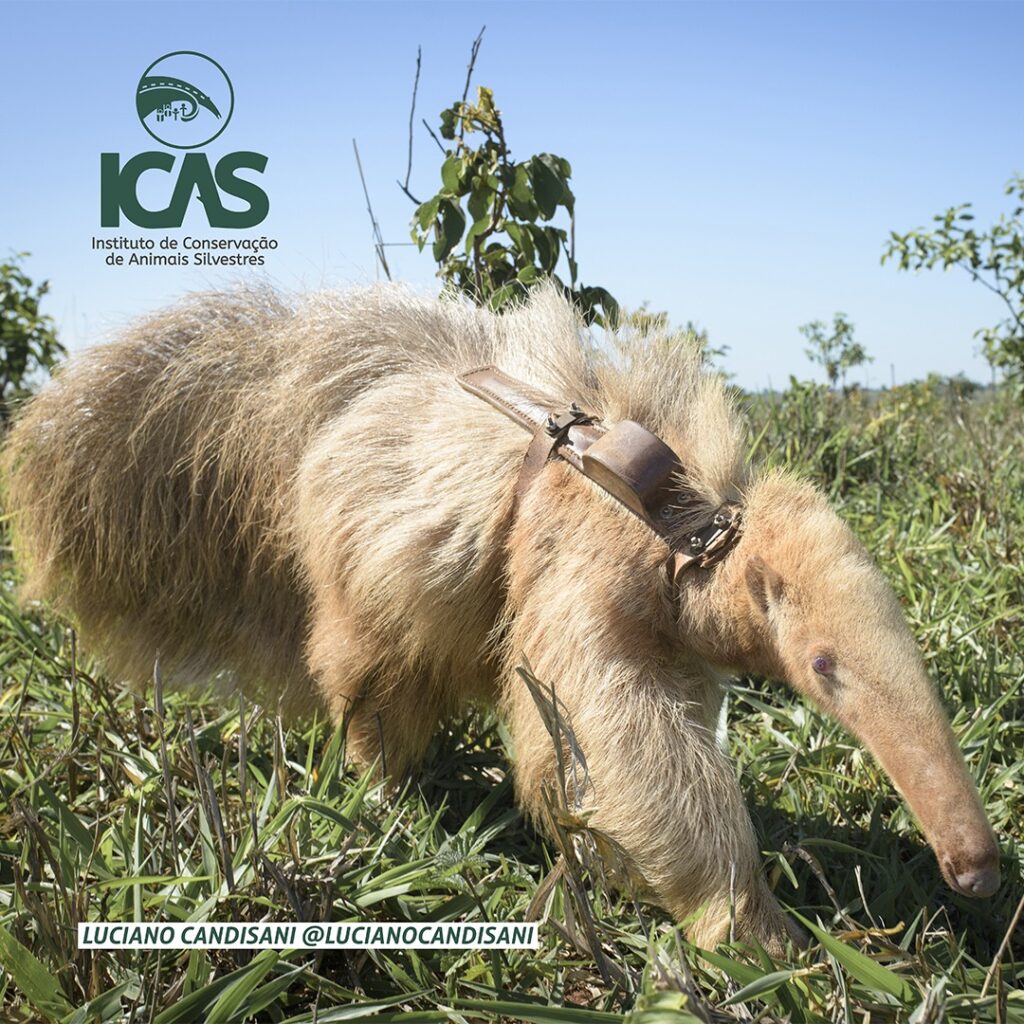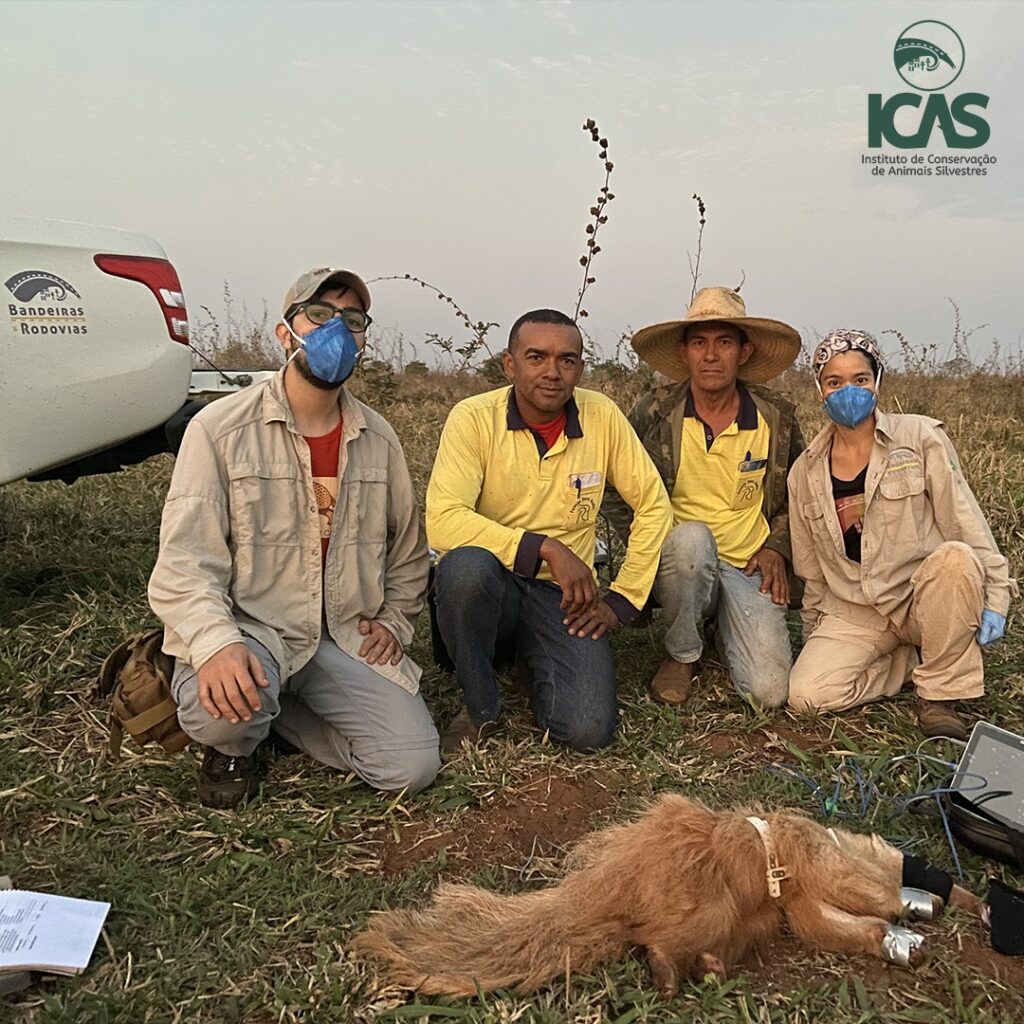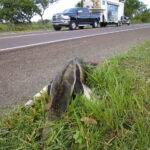An albino giant anteater pup was found on a farm in the Três Lagoas region, in Mato Grosso do Sul (MS), Brazil. Albinism is a genetic disorder that limits the production of melanin, resulting in animals with light-colored or tawny pelage. The pup, dubbed with the name Alvin, received a GPS monitoring harness fitted by researchers from ICAS – Wild Animal Conservation Institute to carry out an unprecedented study to understand how this animal, with its unusual characteristics, will adapt to life out in the open, more specifically in the Cerrado.
According to the veterinarian, Débora Yogui, this is the second individual with albinism located in the same region. The first individual, a juvenile giant anteater that was registered by the Environmental Military Police (PMA) in August 2021 was found dead by ICAS researchers with signs of predation.
“When we got there, he was already dead, but we managed to collect genetic samples that were sent for laboratory analysis. And now, a year later, a female showed up with a small pup (Alvin) on her back that also presented characteristics consistent with albinism, and this time, we were able to get to the animal to put a monitoring collar on him, and this will make it possible to carry out an unprecedented study on this rare trait in these animals,” Débora explained.
Giant anteaters typically have a grayish-brown coat with a large black stripe along their back. This coloration is extremely important for their survival, as it helps camouflage them against possible predators and helps filter sunlight, providing thermal comfort and protecting these animals from the intense sun and heat typical of the Cerrado.

Nina Attias, biologist and researcher at ICAS, explains that in addition to genetic traits, the study will assess how the fact of being albino influences the animal’s behavior and health. All anteaters are naturally sensitive to extreme temperatures and need areas with denser vegetation to shelter themselves from the extreme cold or heat. This can be an even greater challenge for an albino anteater living in the Cerrado – one of the biomes that suffers most from the deforestation of its native areas, drastically reducing the habitat of wild animals.
“There is an ecological theory that says that free-living albino animals tend to be less adapted to nature, so we opted to carry out a monitoring study that will enable us to understand whether they are in fact more susceptible to the sun, heat, cold, and predators, as well as to understand more about the behavior and needs of these rare individuals. Even knowing that he runs multiple risks, we cannot directly interfere in the life of this animal, since we would be influencing natural ecological processes and, as conservationists, we know that this is not good for the species nor for the environment,” the researcher said.
In addition to monitoring Alvin’s behavior after moving off his mother’s back and how he adapts to this environment, the study aims to determine whether this giant anteater or his mother may have some genetic relationship to the juvenile found in 2021 and try to understand how such a rare event could have happened twice in the same place in such a short period.

contato@icasconservation.org.br
Read the news article about this work published via BBC Brasil (in Portuguese):: https://www.bbc.com/portuguese/brasil-64006619.



